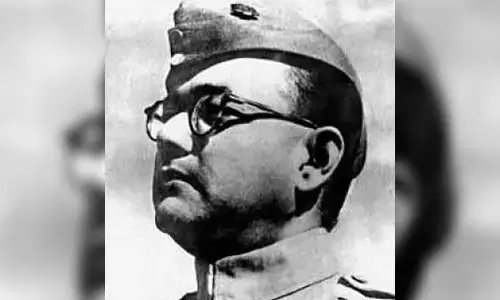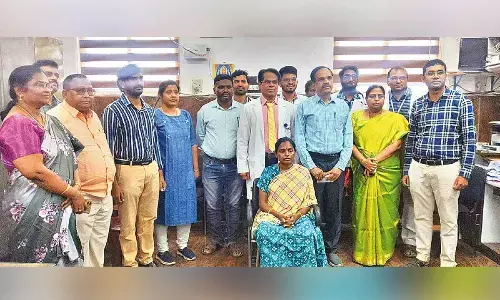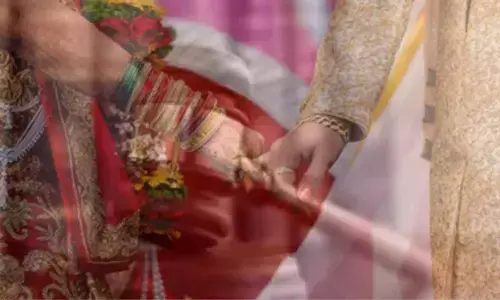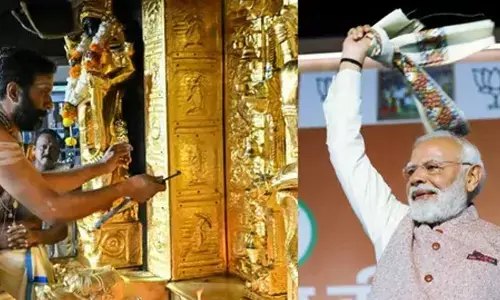Telugu community in US a divided lot

Telugu community in US a divided lot. Telugu community is totally divided on the basis of region, caste and religion. It is sad to learn that a registered non-profit Telugu association gone to court due to internal differences where judge commented saying "shame on you" being a non-profit cultural organisation.
Telugu community is totally divided on the basis of region, caste and religion. It is sad to learn that a registered non-profit Telugu association gone to court due to internal differences where judge commented saying "shame on you" being a non-profit cultural organisation.
This is my third visit to the United States of America in relation to see one my relatives undergoing treatment for cancer. Earlier I had been to America as an academician in 1987 and to present a paper at the University of Wisconsin, Madison, in 2003.
During my first visit, I found very few Telugus in the US and after 2000 the number has increased significantly. Now Georgia itself has about 1.2 lakh Telugus. The State is also home for many African-Americans and has a place in American history since civil rights leader Martin Luther King was born on 15th January 1929 in Atlanta, Georgia.
As there is no social and emotional integration among Telugu people, secular social integration is sine quo of Telugu identity. First generation immigrants were biochemist Yellapragada Subbarao and mathematician C R Rao who taught statistics to Americans. Second generation of migrants was academicians, engineers and scientists; they brought much name and fame to India. In my first visit to America in 1985 there were very few Telugus. I used to travel from New York to New Jersey to meet my friends and known people.
Now the situation is tragic, Telugu community is totally divided on the basis of region, caste and religion. It is sad to learn that a registered non-profit Telugu association gone to court due to internal differences where judge commented saying "shame on you" being a non-profit cultural organisation. It is also sad to learn that in the name of cultural fests, some groups of cultural and political organisations from India go to the US to make money.
I expected Telugu magnanimity at a meeting to which I was invited. When I enquired about the atmosphere of different Telugu speaking people, I was told that the lot present there was all neutral. I also learnt that the gathering comprised people from all the three regions of Andhra Pradesh. When they raised a few questions and concerns about their respective regions, I replied that would we stop communication in Telugu if the State in India is divided or united. By keeping our identity itself, we can integrate with US citizens or culture. The Telugu culture should be reflected in food habits, relationships, traditions and customs.
Some factors responsible for division among Telugu people in the US are: Most of the people who migrated post- 2000 Information Communication Technology (ICT) revolution were lower middle class, children of employees from small towns and of course a lot from Hyderabad. Majority of engineers have very little knowledge of human relations due to curriculum.
I advised the people at the meeting to name the Telugu colonies or societies as Bhimavaram or Karimnagar, as the Europeans named a few habitats after Birmingham and Manchester. If you cut Atlantic, America is an extension of Europe. This method of naming native places in the US will not only promote Telugu culture but also geographical identity.
The Telugu speaking community is highest paid job-holders in America unlike any other Indian. One would expect a unique behavior and culture from Telugus which would show their intellectual caliber, social cohesion and legacy of Telugu culture. But their sub-identities present them in a poor light.
Telugu culture is not related to dialects, what type of Telugu they can replicate from the villages, names or culture. When it comes to Telugu culture, it has a unique identity in India. Language and culture of Telugu has relationship with different categories of people namely, Tamilians, Kannadigas, Marathas, and Hindi, Oriya and Urdu speakers.
The NRIs in the USA who are branded "Never Return Indians" will remain to be Telugu Americans as long as colour, language, food, worship, attire and human relations remain to be different from Anglo-Saxons.

















